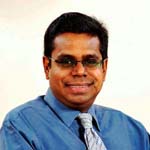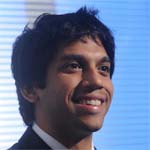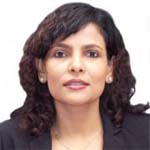| Topic: | Business Climate Outlook of 2016 |
| Date/Time: | Tuesday, 8th December 2015 | 0845 – 1750 HRS |
| Venue: | Oak Room, Cinnamon Grand |
| Host: | Lakshaman Bandaranayake | Founding Publisher, Director | Lanka Business Online |
| Inquiries: | Lakshaman Bandaranayake | lakshaman@lbo.lk | 071 176 0167 or 072 776 0167 General | debrief@lbo.lk |
| Registration fee: | Rs 12,900/= per participant, 5% discount for groups of 5 upto 9 and 10% discount for groups of 10 or more |
Description
A concise overview of what one can expect in global economy, key economies and in Sri Lankan economy and business leader views on navigating political-economic landscape of 2016.LBR LBO DEBRIEF WILL BRING CLARITY TO POLITICAL-ECONOMY IN A STATE OF FLUX
In a world of increasing economic integration, no business executive, investor, public sector official, academic or researcher can afford to be oblivious to the pulse of the economy- global, regional and local.
However, making sense in a rapidly evolving political-economic scenario is a daunting task.
With this in mind, the 2015 edition of LBR LBO Debrief will critically discuss, debate and deliberate on;
1) The global, regional and local economic outlook, state of play in key markets and evolving global political and security order 2) Likely impact of global economic and geopolitical developments, including monetary policy normalisation in the US, on Sri Lankan economy and business climate 3) Budget of 2016 and Prime Minister’s policy statement and what they mean to commerce and industry 4) Business leader’s expectations and how they intend to lead and navigate their organisations in the evolving political and economic landscape. CLOUDED GLOBAL GROWTH PROSPECTSInternational Monetary Fund (IMF) expects the world economy to grow in 2015 at its slowest pace since the global financial crisis, with a deep slowdown in China and other emerging economies masking a strengthening recovery in rich countries. (“World Economic Update of October 2015”)
The Fund also expects a continued growth slowdown in emerging market economies. The continued growth slowdown reflects several factors, including lower commodity prices and tighter external financial conditions, structural bottlenecks, rebalancing in China, and economic distress related to geopolitical factors.
The Organisation for Economic Co-operation and Development (OECD) echoed similar sentiments in the economic outlook released on the 9th November. “Global growth prospects have clouded this year. We now expect the global economy to grow by less than 3% in 2015. This is the weakest growth since 2009 and well below the long-run average. This largely reflects further weakness in Emerging Market Economies (EMEs), with recessions in Brazil and Russia and the slowdown in China hitting activity in key trading partners. This sharp slowdown in emerging market economies (EMEs) is weighing on global activity and trade, and subdued investment and productivity growth is checking the momentum of the recovery in the advanced economies.”
Euro Zone fragility continues. However, the EU’s “Economic Outlook Autumn 2015” observes that the economic recovery in the euro area and the European Union- which now is in its third year -should continue at a modest pace during next year despite more challenging conditions in the global economy. The influx of asylum seekers from Middle East has posed both fiscal and moral challenges. Petro economies continue to face fiscal challenges caused by depressed oil prices.
According to Economic Outlook Forecasts of EU, The US economy is likely to continue its broad-based recovery, with the support of low energy prices, easing fiscal drag, but amid increasing policy uncertainty. Growth momentum will remain robust in 2016 and 2017, with real GDP projected to expand by 2.8% and 2.7%, respectively.
Russia, hit by the double whammy of economic sanctions and low oil prices, has moved into a deep recession in 2015. Negative growth is expected to continue in 2016 following the extension of sanctions and the renewed fall in the oil price. The military excursions in the Middle East is likely to worsen Russia’s fiscal challenges.
Slowing demand from emerging Asian economies weighed on export performance of Japan resulted in lower than expected growth in 2015, but the economic growth is set to pick up in 2016.
The Chinese economy is gradually shifting gears, after 30 years of breakneck, double-digit economic expansion that lifted millions of Chinese from abject poverty but also polluted the nation's air, land and waterways.
The rebalancing of Chinese economy from one that is primarily labor-intensive, investment-led, export-oriented to one based on value-added production, services and domestic consumption is under way. However, the transition could be painful to China as well as to primary good exporters. The possibility of China further slowing down its economic reforms to ease out short-term pains of the economy in transition is close to reality.
In this backdrop it is encouraging to note that IMF expects a rebound in activity in a number of distressed economies to result in a pickup in growth in 2016.
OECD expects the global growth gradually strengthen through 2016 and 2017, but it is warned that this outcome is far from certain given rising downside risks and vulnerabilities, and uncertainties about the path of policies and the response of trade and investment.
Geopolitics have begun to show tectonic shifts. Russia’s direct involvement in Syrian civil war and China flexing its military muscles have escalated global geopolitical tension.
PAINS OF REGIME CHANGEAt home, adjusting to the regime change has not been easy. Attempts to move away from an autocratic form of governance to a more consensual and participatory form certainly has slowed down the government machinery.
2015 has been a tumultuous year for Sri Lanka. Two elections and another election looming ahead aren’t the most favorable backdrop for rational fiscal policy decision making. The budget of January 2015 has sent mixed signals to the business and investor community. The formation of a new government has not broken the inertia of the government. Business community is eagerly awaiting fresh impetus to turn the wheels of the economy faster.
Sri Lanka appears to be perpetually living on the edge of an impending Balance of Payment crisis. Since early August the currency has lost nearly 10% of its value. Fixed Deposit rates have started edging upwards. A possible rate hike in the United States could make attracting foreign funds difficult, thus affecting the liquidity of capital markets.
As the country has now reached middle-income economy status, the access to funds on concessionary terms are also drying up.
Fortunes of the Sri Lankan economy during the next 12 months will be closely linked to that of global economy as well as to the economic policy and the impact of the impending budget proposals, which Hon Finance Minister has dubbed as revolutionary.
Sri Lanka needs to address few critical areas without further delay. 1) Boosting inclusive growth through the development of productive sectors 2) Institute structural reforms needed to move the country beyond the lower middle-income economy 3) Enhance productivity to meet the demographic challenges and moving the economy up the value chain 4) Promote international trade and investment 5) Fight the rising protectionism and truly integrate the economy with the regionWhilst continuing to exploit opportunities in traditional markets, Sri Lanka must also turn to the Orient for future growth prospects, as the bulk of world GDP growth is expected to come from the Pacific Rim and India.
The Modi factor has already shown positive impact in India. S&P, having raised outlook in India to “stable”" has noted that the new government has both the willingness and capacity to implement reforms necessary to restore some of India's lost growth potential, consolidate its fiscal accounts, and permit the Reserve Bank of India to carry out effective monetary policy".
INSIGHTFUL AND THOUGHT PROVOKING SPEECHES AND PANELS DISCUSSION Over fifteen Economists, researchers, public sector officials and leading corporate executives will take the stage at the forthcoming LBR LBO DEBRIEF “Business Climate Outlook 2016”. Three insightful presentations: (1) A regional economist will critically examine the outlook of world economy, the state of play of key economies and what one can expect in Sri Lankan economy. (2) Paulius Kuncinas (Managing Editor, Asia, Oxford Business Group) will bring insightful perspectives on the rapidly changing global security and political order (3) Nishan de Mel PhD, Executive Director of Verité Research will discuss how the Sri Lankan economy is likely to unfold during the next 12 months. Three thought provoking panel discussions: (4) How will the evolving political economic scenario impact Sri Lankan business and economy? (5) What the budget 2016 and Prime Minister’s policy statement would mean to the industry and economy? (6) How will the business leaders navigate and steer their enterprises in 2016?Agenda
| 0730 - 0845 | Delegate check-in, Summit materials collection, networking breakfast | |||
| 0845 - 0850 | LBR LBO Debrief opening | |||
| 0850 - 0855 | Opening remarks, partner recognition and appreciation | |||
| 0855 - 0930 | KEYNOTE 1 | |||
| THE STATE OF GLOBAL ECONOMY AND CHLLANGES AHEAD | ||||
| Eteri Kvintradze, Resident Representative, IMF | ||||
| 0930 - 0950 | KEYNOTE 2 | |||
| OUTLOOK AND STATE OF PLAY: US, UK, EURO ZONE, JAPAN & CHINA | ||||
| Ralph van Doorn, Senior Country Economist for Sri Lanka and the Maldives Global Practice for Macroeconomics & Fiscal Management, World Bank | ||||
| 0950 - 1010 | KEYNOTE 3 | |||
| OUTLOOK AND STATE OF PLAY: INDIA AND DEVELOPING ASIA | ||||
| Gunjan Gulati, Economist, IFC | ||||
| 1010 - 1040 | KEYNOTE 4 | |||
| THE SHIFTING GEO-POLITICAL LANDSCAPE AND IMPLICATIONS | ||||
| Paulius Kuncinas , Managing Editor, Asia Oxford Business Group | ||||
| 1040- 1045 | Sponsor commercials | |||
| 1045 - 1130 | KEYNOTE 5 | |||
| OUTLOOK AND AN ASSESSMENT OF SRI LANKAN ECONOMY | ||||
| Nishan de Mel, Executive Director and Head of Research, Verite Research | ||||
| 1130 - 1300 | PANEL DISCUSSION 1 | |||
| HOW WILL THE EVOLVING POLITICAL ECONOMIC SCENARIO IMPACT SRI LANKAN BUSINESS AND ECONOMY? | ||||
| Session Chair | Panelists | |||
| Dilshan Rodrigo COO HNB | Shiran Fernando Senior Analyst and Product Head: Economic and Equity Research Frontier Research | Ralph van Doorn Senior Country Economist for Sri Lanka and the Maldives Global Practice for Macroeconomics & Fiscal Management World Bank | Nishan de Mel Executive Director and Head of Research Verité Research | |
| Panelists | ||||
| Paulius Kuncinas Managing Editor, Asia Oxford Business Group | Gunjan Gulati Economist IFC | |||
| 1300 - 1345 | LUNCH | |||
| 1345 - 1400 | Partner Feature Presentations (3) | |||
| 1400 - 1415 | Budget 2016 Highlights | |||
| Reyaz Mihular, Managing Partner, KPMG in Sri Lanka | ||||
| 1415 - 1430 | Highlights of PM’s Policy Statement and Implications to Private Sector | |||
| Deshal de Mel, Senior Economist | Hayleys | ||||
| 1430 - 1545 | PANEL DISCUSSION 2 | |||
| WHAT THE BUDGET 2016 AND PRIME MINISTER’S POLICY STATEMENT WOULD MEAN TO THE INDUSTRY AND ECONOMY? | ||||
| Session Chair | Panelists | |||
| Nishan de Mel Executive Director and Head of Research Verité Research | Reyaz Mihular Managing Partner KPMG in Sri Lanka | Nandalal Weerasinghe PhD Deputy Governor Central Bank of Sri Lanka | Deshal de Mel Senior Economist Hayleys | |
| Panelists | ||||
| Amal Sanderatne, CFA Founder/CEO Frontier Research and Frontier i | Eteri Kvintradze, Resident Representative, IMF | |||
| 1545 - 1555 | TEA / COFFEE | |||
| 1555 - 1600 | Partner Feature Presentations | |||
| 1600 - 1745 | PANEL DISCUSSION 3 | |||
| BUSINESS LEADER ROUNDTABLE | ||||
| HOW WILL THE BUSINESS LEADERS NAVIGATE AND STEER THEIR ENTERPRISES IN 2016? | ||||
| Session Chair | Panelists | |||
| Peter D'Almeida CEO, N*Able | Suresh Shah Director / CEO Lion Brewery Ceylon PLC & Ceylon Beverage Holdings PLC Director Carson Cumberbatch & Co PLC | Steven Enderby Group Chief Executive Hemas PLC | Jim McCabe CEO, Sri Lanka Standard Chartered | |
| Panelists | ||||
| Tania Polonnowita Wettimuny Managing Director / Hellmann Worldwide Logistics Chairperson Sri Lanka Logistics & Freight Forwarders Association | ||||
| 1745 - 1900 | LBR LBO Debrief closing, Partner appreciation, Vote of thanks | |||
| Networking reception | ||||
Sessions & Speakers
KEYNOTE 1: THE STATE OF GLOBAL ECONOMY AND CHLLANGES AHEAD
 Eteri Kvintradze
Resident Representative
IMF
Eteri Kvintradze
Resident Representative
IMF
Ms. Eteri Kvintradze is Resident Representative for Sri Lanka and Maldives. Before her current assignment, she was Resident Representative in Bangladesh, where the Fund has successfully engaged in its largest Extended Credit Facility program. A national of Georgia, Ms. Kvintradze joined the Fund as a mid-career economist. She worked on designing new IMF lending facilities and debt limit policies, worked on Mozambique and Sri Lanka programs. Before joining the Fund, she served as Deputy Minister of Finance in Georgia. She also worked as an advisor to the Executive Director for Netherlands Constituency at the World Bank Board. Ms. Kvintradze studied international economics at Tbilisi State University, holds MA in Development Economics from Williams College, and PhD in Economics from Georgetown University.
KEYNOTE 2: OUTLOOK AND STATE OF PLAY: US, UK, EURO ZONE, JAPAN & CHINA
 Ralph van Doorn
Senior Country Economist for Sri Lanka and the Maldives
Global Practice for Macroeconomics & Fiscal Management
World Bank
Ralph van Doorn
Senior Country Economist for Sri Lanka and the Maldives
Global Practice for Macroeconomics & Fiscal Management
World Bank
Mr. Ralph van Doorn is the World Bank's senior country economist for Sri Lanka and Maldives. His work focuses on analyzing macroeconomic developments and the drivers of growth, and providing technical assistance to the government, with a specific focus on fiscal policy and public debt management. Previously at the World Bank he worked on fiscal policy, debt and growth issues in African, East Asian, Eastern European and Central Asian countries. Before joining the World Bank he worked at Credit Suisse in London analyzing developments in Egypt, Kazakhstan and the Gulf countries. He has published analyses on the impact of the global financial crisis on developing countries and the sovereign debt crisis in Europe. He holds a Master of Research degree in economics from the London School of Economics and a Master of Science degree in applied physics from Delft University of Technology in the Netherlands.
KEYNOTE 3: OUTLOOK AND STATE OF PLAY: INDIA AND DEVELOPING ASIA
 Gunjan Gulati
Economist
IFC
Gunjan Gulati
Economist
IFC
Gunjan, currently works as a Regional Economist, Asia for International Finance Corporation (IFC), based out of Mumbai. She joined IFC from JPMorgan, where she closely monitored the macroeconomic dynamics of the Indian subcontinent. Her work involved analyzing economic trends, forecasting key economic variables, writing research reports and active interaction with clients, government officials, policymakers as well as media. Prior to JP Morgan, she worked with CRISIL, a Standard and Poor’s company, working on diverse advisory and research opportunities involving, state level economic advisory and macro-economic advisory. She joined CRISIL as a campus placement after completing her Masters in Economics from Delhi School of Economics, Delhi.
KEYNOTE 4: THE SHIFTING GEO-POLITICAL LANDSCAPE AND IMPLICATIONS
 Paulius Kuncinas MA (Oxford)
Managing Editor, Asia
Oxford Business Group
Paulius Kuncinas MA (Oxford)
Managing Editor, Asia
Oxford Business Group
As head of a team of analysts who produce Oxford Business Group’s flagship reports on Asia’s leading growth economies, Mr. Paulius Kuncinas frequently addresses public and private sector stakeholders in regional conferences. Honed by his experience as a research economist and writer, he is recognized as an expert in macroeconomics, industrial development, banking and telecoms.
KEYNOTE 5: OUTLOOK AND AN ASSESSMENT OF SRI LANKAN ECONOMY
 Nishan de Mel D.Phil. (Oxford)
Executive Director and Head of Research
Verité Research
Nishan de Mel D.Phil. (Oxford)
Executive Director and Head of Research
Verité Research
Nishan de Mel, Executive Director and Head of Research, is an economist with extensive academic, policy and private sector experience.
Nishan taught and researched economics at Oxford and Harvard universites. In the 1990s, he sat on multiple Presidential Task Forces in Sri Lanka, playing an instrumental role in designing national policies on Health Sector Reform, Social Security and Tobacco & Alcohol. He also served as the Executive Director of the International Centre for Ethnic Studies and the Sri Lanka Foundation Institute. He sits on multiple private sector boards and consults regularly as a strategist for some of the region's largest firms. Nishan has a A.B. from Harvard, an MPhil and a D.Phil both from Oxford Univeristy, where he was a Chevening Scholar. He is fluent in English and Sinhala.
PANEL DISCUSSION 01
 Session Chair
Dilshan Rodrigo
COO
HNB
Session Chair
Dilshan Rodrigo
COO
HNB
Dilshan Rodrigo is currently the Chief Operating Officer of Hatton National Bank PLC and an appointed Director of Acuity Securities Ltd. He is a senior banker with extensive experience in Retail Banking, Finance, Institutional Banking and Risk Management in leading local and foreign commercial banks operating in Sri Lanka.
He is a member of the Sri Lanka Institute of Directors, Alternate Director for Credit Information Bureau and holds several Directorships in subsidiary companies of the bank. He was elected Chairman for a two year period of the Asian Banker’s Policy Advocacy Committee, a forum for advancing the cause of banking and finance in the region and promoting regional co-operation. ABA’s membership comprises over 100 lending banks from 23 countries in the Asia-Pacific region. He holds a MBA from Cranfield University, UK and is a fellow of CIMA and ACCA UK Accounting bodies and has actively served on both councils in Sri Lanka, particularly in the latter where he was elected President for a two year term.
 Panelist
Ralph van Doorn
Senior Country Economist for Sri Lanka and the Maldives
Global Practice for Macroeconomics & Fiscal Management
World Bank
Mr. Ralph van Doorn is the World Bank's senior country economist for Sri Lanka and Maldives. His work focuses on analyzing macroeconomic developments and the drivers of growth, and providing technical assistance to the government, with a specific focus on fiscal policy and public debt management. Previously at the World Bank he worked on fiscal policy, debt and growth issues in African, East Asian, Eastern European and Central Asian countries. Before joining the World Bank he worked at Credit Suisse in London analyzing developments in Egypt, Kazakhstan and the Gulf countries. He has published analyses on the impact of the global financial crisis on developing countries and the sovereign debt crisis in Europe. He holds a Master of Research degree in economics from the London School of Economics and a Master of Science degree in applied physics from Delft University of Technology in the Netherlands.
Panelist
Ralph van Doorn
Senior Country Economist for Sri Lanka and the Maldives
Global Practice for Macroeconomics & Fiscal Management
World Bank
Mr. Ralph van Doorn is the World Bank's senior country economist for Sri Lanka and Maldives. His work focuses on analyzing macroeconomic developments and the drivers of growth, and providing technical assistance to the government, with a specific focus on fiscal policy and public debt management. Previously at the World Bank he worked on fiscal policy, debt and growth issues in African, East Asian, Eastern European and Central Asian countries. Before joining the World Bank he worked at Credit Suisse in London analyzing developments in Egypt, Kazakhstan and the Gulf countries. He has published analyses on the impact of the global financial crisis on developing countries and the sovereign debt crisis in Europe. He holds a Master of Research degree in economics from the London School of Economics and a Master of Science degree in applied physics from Delft University of Technology in the Netherlands.
 Panelist
Paulius Kuncinas MA (Oxford)
Managing Editor, Asia
Oxford Business Group
Panelist
Paulius Kuncinas MA (Oxford)
Managing Editor, Asia
Oxford Business Group
As head of a team of analysts who produce Oxford Business Group’s flagship reports on Asia’s leading growth economies, Mr. Paulius Kuncinas frequently addresses public and private sector stakeholders in regional conferences. Honed by his experience as a research economist and writer, he is recognized as an expert in macroeconomics, industrial development, banking and telecoms.
 Panelist
Nishan de Mel D.Phil. (Oxford)
Executive Director and Head of Research
Verité Research
Panelist
Nishan de Mel D.Phil. (Oxford)
Executive Director and Head of Research
Verité Research
Nishan de Mel, Executive Director and Head of Research, is an economist with extensive academic, policy and private sector experience.
Nishan taught and researched economics at Oxford and Harvard universites. In the 1990s, he sat on multiple Presidential Task Forces in Sri Lanka, playing an instrumental role in designing national policies on Health Sector Reform, Social Security and Tobacco & Alcohol. He also served as the Executive Director of the International Centre for Ethnic Studies and the Sri Lanka Foundation Institute. He sits on multiple private sector boards and consults regularly as a strategist for some of the region's largest firms. Nishan has a A.B. from Harvard, an MPhil and a D.Phil both from Oxford Univeristy, where he was a Chevening Scholar. He is fluent in English and Sinhala.
 Panelist
Shiran Fernando
Senior Analyst and Product Head: Economic and Equity Research
Frontier Research
Panelist
Shiran Fernando
Senior Analyst and Product Head: Economic and Equity Research
Frontier Research
He overseas Economic and Equity Services at Frontier Research and leads Macro Economic presentations catering to senior level management team and plays an instrumental role in building strong business relationships with Top and Middle level management.He has been instrumental in building up new products such as the Trader’s Edge reports, focused on Short Term Trading of Local Government Securities while contributing to the continuous innovation and improvements of Frontier Products. Shiran loves Manchester United, International economics and international relations in that order.
 Panelist
Gunjan Gulati
Economist
IFC
Gunjan, currently works as a Regional Economist, Asia for International Finance Corporation (IFC), based out of Mumbai. She joined IFC from JPMorgan, where she closely monitored the macroeconomic dynamics of the Indian subcontinent. Her work involved analyzing economic trends, forecasting key economic variables, writing research reports and active interaction with clients, government officials, policymakers as well as media. Prior to JP Morgan, she worked with CRISIL, a Standard and Poor’s company, working on diverse advisory and research opportunities involving, state level economic advisory and macro-economic advisory. She joined CRISIL as a campus placement after completing her Masters in Economics from Delhi School of Economics, Delhi.
Panelist
Gunjan Gulati
Economist
IFC
Gunjan, currently works as a Regional Economist, Asia for International Finance Corporation (IFC), based out of Mumbai. She joined IFC from JPMorgan, where she closely monitored the macroeconomic dynamics of the Indian subcontinent. Her work involved analyzing economic trends, forecasting key economic variables, writing research reports and active interaction with clients, government officials, policymakers as well as media. Prior to JP Morgan, she worked with CRISIL, a Standard and Poor’s company, working on diverse advisory and research opportunities involving, state level economic advisory and macro-economic advisory. She joined CRISIL as a campus placement after completing her Masters in Economics from Delhi School of Economics, Delhi.PANEL DISCUSSION 02
 Session Chair
Nishan de Mel D.Phil. (Oxford)
Executive Director and Head of Research
Verité Research
Session Chair
Nishan de Mel D.Phil. (Oxford)
Executive Director and Head of Research
Verité Research
Nishan de Mel, Executive Director and Head of Research, is an economist with extensive academic, policy and private sector experience.
Nishan taught and researched economics at Oxford and Harvard universites. In the 1990s, he sat on multiple Presidential Task Forces in Sri Lanka, playing an instrumental role in designing national policies on Health Sector Reform, Social Security and Tobacco & Alcohol. He also served as the Executive Director of the International Centre for Ethnic Studies and the Sri Lanka Foundation Institute. He sits on multiple private sector boards and consults regularly as a strategist for some of the region's largest firms. Nishan has a A.B. from Harvard, an MPhil and a D.Phil both from Oxford Univeristy, where he was a Chevening Scholar. He is fluent in English and Sinhala.
 Panelist
Reyaz Mihular
Managing Partner
KPMG in Sri Lanka
Panelist
Reyaz Mihular
Managing Partner
KPMG in Sri Lanka
Reyaz has been with KPMG Sri Lanka for over thirty years and during this time his contribution, both to the firm and the field of accountancy, has been phenomenal.
In addition to holding a number of leadership positions within the KPMG network, he was also the Regional Executive Officer of the KPMG Middle East & South Asia Region, a member of KPMG’s Global Corporate Finance Board and served a term in the London office of KPMG. Reyaz most recently served as the Head of IFRS for the KPMG MESA Region and was also the Head of Advisory and the Chief Information Officer for the KPMG Sri Lanka office. Reyaz is a Past President and Fellow Member of the Institute of Chartered Accountants of Sri Lanka and currently serves as the Deputy President of the Chartered Institute of Management Accountants (UK) – Sri Lanka Branch.
Reyaz was also the first Sri Lankan to serve as a Board Member of the International Accounting Standards Committee (IASC), a position which he held for 5 years and during that time he chaired the Steering Committee which developed International Accounting Standard IAS 41 – Agriculture and was a member of the Steering Committee which developed IAS 19 - Employee Benefits. Subsequent to this appointment he served on the IASC’s Standing Interpretations Committee for a year and as a Member of the IFRS Advisory Council of the International Accounting Standards Board. He also presently serves as the Chairman of the Accounting & Auditing Standards Committee of the South Asian Federation of Accountants.
Reyaz has also held a number of directorates including serving as an Independent Non-Executive Director of the Ceylon Electricity Board, the Independent Television Network and the Post Graduate Institute of Management. Further, his knowledge of industry and accountancy has made him a key speaker at numerous local and international forums.
Reyaz Mihular takes office from Nirmal Fernando, who retires from service after an illustrious career which spanned over four decades.
 Panelist
Nandalal Weerasinghe PhD
Deputy Governor
Central Bank of Sri Lanka
Panelist
Nandalal Weerasinghe PhD
Deputy Governor
Central Bank of Sri Lanka
Dr. P Nandalal Weerasinghe has over 20 years of experience in the Central Bank especially in the field of Economic Research. His wide experience spans in the fields of Economic and Price stability, Economic Growth, International Finance, International Trade, Fiscal Policy, Reserve Management and Global Economic Issues. Currently he is working as an Alternate Executive Director of the International Monetary Fund in Washington DC representing Sri Lanka, India, Bangladesh and Bhutan. He also held the position of Assistant Governor in-charge of Economic and Price Stability.
He holds a PhD and M.Sc from the Australian National University and B.Sc General degree from the University of Kelaniya. He has authored many articles in reputed international and local journals in the areas of inflation, monetary policy and economic growth. He has been a visiting lecturer at the University of Colombo, visiting research Economist at the SEACEN Research and Training Center and a resource person for high level courses in Economics conducted by the Bank. He has also addressed both local and international seminars and conferences to represent the Central Bank of Sri Lanka.
Dr. Weerasinghe immensely contributed on recommending appropriate economic and monetary policies on time to maintain the economic and price stability of the country as the Director of Economic Research. He has served in many committees appointed by the Central Bank including committee to Study Commercial Viability of CEB and CPC, Financial Sector Monitoring Committee/Ministry of Finance, Petroleum Refinery Project Coordinating Committee, Uma Oya Multi-purpose Development Project Committee, Committee to Evaluate Swap Arrangement with Malaysia and various Cabinet appointed committees including Economic Development and Management, Power Generation Expansion, Hedging Risk Management. He has also served as an observer on the Boards of Directors of Ceylon Petroleum Corporation and the Board of Investments. Dr. Weerasignhe is a regular speaker at various forums in different capacities, especially in the area of economics.
 Panelist
Deshal de Mel
Economist
Hayleys
Panelist
Deshal de Mel
Economist
Hayleys
Mr. Deshal de Mel presently works for the Hayleys Group as its Senior Economist. Prior to joining Hayleys, he worked for the Institute of Policy Studies, Sri Lanka. His research has been published in a number of books and journals. Along with policy research, Mr. de Mel has also represented the Government of Sri Lanka in inter-governmental trade negotiations. He has a degree in Philosophy, Political Science and Economics from the University of Oxford, UK, and a Master's in International Political Economy from the London School of Economics, UK. He serves on the Board of Directors of Sampath Bank PLC as a Non-Executive Director, and also serves on the Economic, Fiscal and Policy Planning (EFPP) Committee and Export Committee of the Ceylon Chamber of Commerce.
 Panelist
Amal Sanderatne, CFA
Founder/CEO
Frontier Research and Frontier i
Panelist
Amal Sanderatne, CFA
Founder/CEO
Frontier Research and Frontier i
Amal is an alumni of the London School of Economics, and is a CFA® charterholder. He previously worked at Jardine Fleming HNB Securities Sri Lanka as Head of Research. Following the takeover of Jardine Fleming by JP Morgan Chase he was transferred to Singapore where he led JP Morgan’s Asia Pacific ADR research and also managed the research of Hong Kong based Access Products Group. Amal founded Frontier Research in 2001 with a vision of creating a firm that does great work whilst offering a choice driven culture to its employees.
 Panelist
Eteri Kvintradze
Resident Representative
IMF
Panelist
Eteri Kvintradze
Resident Representative
IMF
Ms. Eteri Kvintradze is Resident Representative for Sri Lanka and Maldives. Before her current assignment, she was Resident Representative in Bangladesh, where the Fund has successfully engaged in its largest Extended Credit Facility program. A national of Georgia, Ms. Kvintradze joined the Fund as a mid-career economist. She worked on designing new IMF lending facilities and debt limit policies, worked on Mozambique and Sri Lanka programs. Before joining the Fund, she served as Deputy Minister of Finance in Georgia. She also worked as an advisor to the Executive Director for Netherlands Constituency at the World Bank Board. Ms. Kvintradze studied international economics at Tbilisi State University, holds MA in Development Economics from Williams College, and PhD in Economics from Georgetown University.
PANEL DISCUSSION 03
 Session Chair
Peter D'Almeida
CEO
N*Able
Session Chair
Peter D'Almeida
CEO
N*Able
Peter is the Managing Director and Chief Executive of N-able (Pvt) Ltd, an IT venture he founded in 2008 with the Hemas Group, and counts for 25 years in the IT industry. Starting his career at East West Information Systems, he moved to ComputerLand to launch Sun Microsystems in Sri Lanka and led the pioneering efforts to introduce open systems and client server computing to the country. Prior to joining Hemas, he served as the Chief Executive of Millennium ESP, the Enterprise and Service Provider business of Millennium Information Technologies. He is also a member of the Cisco Asia Pacific Japan (APJ) Channel Advisory Board and the APJ Advisory Board of Palo Alto Networks.
 Panelist
Steven Enderby
Group Chief Executive
Hemas PLC
Panelist
Steven Enderby
Group Chief Executive
Hemas PLC
Mr. Steven Enderby joined Hemas in March 2013 to head the Group efforts in Mergers and Acquisitions. He took up the Office of Deputy CEO and Director of Hemas Holdings PLC in November 2013 and was appointed the CEO on 1st April 2014. Mr. Enderby has had a successful track record in the private equity space with Actis, a leading global emerging markets fund until his retirement in 2011 as an Actis Partner. Some of the most successful private equity transactions he led include South Asia Gateway Terminal, Ceylon Oxygen and Millennium Information Technologies in Sri Lanka.
He has also served on the Boards of leading companies in Sri Lanka and India such as John Keells Holdings, Lion Brewery and Punjab Tractors. He is a Fellow of the Chartered Institute of Management Accountants, he holds a Degree in Economics and Accounting from Queens University Belfast, and a Masters Degree in Development Studies from the University of Melbourne.
 Panelist
Suresh Shah
Director/CEO, Lion Brewery Ceylon PLC & Ceylon Beverage Holdings PLC
Director, Carson Cumberbatch & Co PLC
Panelist
Suresh Shah
Director/CEO, Lion Brewery Ceylon PLC & Ceylon Beverage Holdings PLC
Director, Carson Cumberbatch & Co PLC
Director and Chief Executive Officer of Ceylon Brewery PLC and Lion Brewery (Ceylon) PLC. He is also a Director of Carson Cumberbatch PLC and The Sri Lanka Business Development Centre. Mr. Shah serves as the Deputy Vice Chairman of the Ceylon Chamber of Commerce and is a Vice President of the Sri Lanka Institute of Directors and the Confederation of Asia Pacific Chambers of Commerce & Industry (CACCI).
He also serves on the council of The Employers Federation of Ceylon and The Mercantile Services Provident Society. Mr.Shah is a Fellow Member of the Institute of Chartered Accountants of Sri Lanka.
 Panelist
Jim McCabe
CEO, Sri Lanka
Standard Chartered
Panelist
Jim McCabe
CEO, Sri Lanka
Standard Chartered
Mr. Jim McCabe has been the Chief Executive Officer of Standard Chartered Bank, Sri Lanka since January 2015. Mr. McCabe joined Standard Chartered in 2000 and besides having led the operation in Bangladesh, has functioned as Group Head of Operations for Singapore, Chief Executive Officer of Taiwan, Chief Executive Officer of The Americas and Risk Head for North East Asia, Wholesale Banking. He served as the President of Standard Chartered Bank (Taiwan) Limited. He served as Country Chief Executive Officer of Taiwan of Standard Chartered Bank and Chief Executive Officer of United States of America Standard at Standard Chartered PLC.
He also served as the President of Bank of America, Mexico. His service and experience span diverse geographies ranging from the Americas, South East Asia and South Asia. Prior to joining Standard Chartered, he served as the President of Bank of America in Mexico. He served as Chairman of the Board at Standard Chartered Bank (Taiwan) Limited from July 1, 2008 to December 31, 2009 and as its Director from December 13, 2006 to December 31, 2009. Mr. McCabe holds an MBA from Thunderbird School of Global Management, Arizona, USA.
Panelist Tania Polonnowita Wettimuny Managing Director / Hellmann Worldwide Logistics Chairperson Sri Lanka Logistics & Freight Forwarders AssociationManaging Director of Hellmann Worldwide Logistics (Pvt) Ltd, a German based family owned logistics company currently ranked 10th in the world in Freight Forwarding & Logistics with an annual turnover of of3 billion euro's has 457 offices in 157 countries worldwide.
She is an active member in a number of professional and trade organizations such as: Council for Business in Britain (CBB), Sri Lanka Italy Business Council (SLItBC), Women’s Chamber of Commerce (WCC), Women’s International Shipping & Trading Association ( WISTA) and Women in Logistics & Transport (WiLAT)
IronOne

BoardPAC, powered by Iron One Technologies, is the industry-leading provider of corporate governance and meeting solutions for board-level senior executives & administrators. With a global presence in over 20 countries, BoardPAC’s customers include blue-chip companies in banking, finance, telecommunications and healthcare. BoardPAC is the # 1 ranked iPad enabled Board Meeting automation solution platform in Asia pacific and is the emerging leader across the globe.
Hosted on iPad & tablet devices, the BoardPAC solution is a simple, secure and powerful platform that enables board members to instantly access all board communications material, view & confirm meetings and access archived information to make informed decisions from anywhere. Headquartered in Sri Lanka with offices in North America, Europe and the Asia-Pacific region, BoardPAC is ISO27001 certified and a Microsoft Partner Award winner.
Ironone's BoardPAC enables corporate Board Meetings to be conducted in a paperless environment using iPads. It’s a powerful platform enabling Green IT into the enterprise. The key features offered in BoardPAC are ;
• Ability to securely distribute Board Papers to Directors instantly via the ipad • Ability to read Board papers, annotate and share content • Ability to receive last minute revisions and updates • Ability for Directors to collaborate and share comments • Ability to Approve Reject Papers electronically ( Digital Signature) • Ability for Circular resolutions to be carried out electronically • Ability to send Meeting attendance and invitations
What our customers & partners say:
“Shashi Hansjee CEO of Entelect, a leading software solutions provider and BoardPAC's partner in South Africa, said apart from secure electronic delivery of board materials, BoardPAC has a robust capability to handle large volumes of sensitive information. “The availability of a dedicated help desk, provided by Entelect’s technical professionals, means that we are on hand to ensure that any board member will be able to navigate and access their secured documents anytime."
"BoardPAC is making its debut in the Philippines at the right time, as companies increasingly look for digital solutions to speed up communications among top company executives, while still maintaining a high level of privacy and security.” - Cesar Varilla, CEO of solutions provider Novesys in the Philippines.
“According to Norliza Abd Samad, Group Company Secretary, K & N Kenanga Holdings Berhad, “We are pleased with BoardPAC due to its user friendliness and the security measures within the platform that helps us maintain our desired level of governance. IronOne through its partner Maxis Berhad, delivered an e-platform that met our business and operational requirements. Through the BoardPAC platform, we have been able to consolidate all boardroom documents into ‘virtual boardbooks’. Our senior management and board of directors are also able to leverage on the additional features it provides thus creating engagement opportunities beyond the regular meeting.
“Solutions like BoardPAC will enable new ways of working and will help business stay relevant and respond fast in an increasingly technologically-driven landscape.” - Supun Weerasinghe, MD & CEO of Robi Axiata, Bangladesh.
“BoardPAC is part of the solution that will uphold a nation’s territorial integrity against any external threat, including breach of sensitive information. We are pleased to collaborate with BoardPAC to ensure that we can offer this secure platform to our clients in the defense sectors.” - ASM Abdul Motin, chairman of GRAM Limited in Bangladesh.
BoardPAC Website BoardPAC E MAIL - info@board-pac.com BoardPAC E Brochure – Click HereCSE Chairman Vajira Kulatilake said: “The CSE strives to be a leader in the use of green technologies and this is one such example. Moving from paper-based meetings to paperless iPad enabled meetings is one of many strides that the CSE is making in the drive to increase productivity and efficiency using suitable and cost effective technologies.”

